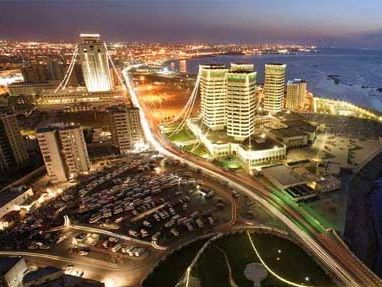First published February 24, 2015

It is not true that the 2011 war caused the dissolution of the Libyan State. This is because, as the Emeritus President of the Republic, Giorgio Napolitano explained, intervening in the Senate: “I consider that, in the modern meaning of the expression, a State has never existed in Libya”. A few months ago, Libya had been defined as a “Failed State” (a category established by the “Peace Foundation” USA). But now it has to be reconsidered: «that it is possible today to speak of a failed state, provokes in me perplexity: the exercise of autocratic and personal power by President Gaddafi on the basis of a system of balances with a multitude of tribes, was not a State».
Therefore on the south side of the Mediterranean, there was not a state. The Arab Republic of Libya, born in 1969 after more than 30 years of Italian colonial domination and almost 20 years of a monarchy dominated by Great Britain and the United States. A state that, after the monarchy had been abolished, had shut down in 1970 the US and British military bases and nationalized the property of British Petroleum. A state that - the World Bank documented in 2010 – maintained “high levels of economic growth”, ensuring (despite the disparities) the highest level of life in Africa and providing work to around two million African immigrants; that recorded «high indicators of human development» among which are universal access to primary and secondary education and, for 46%, university level education. A State that, with its investments, had enabled the birth of institutions that could have brought about the financial independence of Africa: the African Bank for Investment (in Libya), the Central African Bank (in Nigeria) and the African Monetary Fund (in the Cameroons).
Rewriting history, all this is cancelled and Libya of 1969 – 2011 is represented as a non-State, a «multitude of tribes» (a definition of colonial stamp) held together by Gaddafi’s power. Power that undoubtedly existed, the fruit of the historic phases that Libya had undergone, but that was reduced and dissipated, opening the prospect of another evolution of Libyan society. Libya, after the United States and the EU had lifted the embargo in 2004, had rebuilt a space at the international level.
In April 2009, in Washington, the Secretary of State, Hillary Clinton warmly shook the hand of one of Gaddafi’s sons, declaring her desire «to deepen and to expand our cooperation». Not even two years after, this same Clinton launched an international campaign against Gaddafi, preparing for war.
But now, in the context of the presidential race, skeletons come out of the closet: documentary evidence (published by the «Washington Times» and subject to the scrutiny of a Congressional Committee on the Inquiry into the killing of the US ambassador at Benghazi in 2012) demonstrate that it was Clinton that urged the Obama Administration to enter into war against Libya «under false pretences and ignoring the advice of military commanders». While Clinton accused Gaddafi of genocide, the US intelligence referred through its internal report that «Gaddafi had given the order not to attack civilians but to concentrate on the rebel armies». Also another documented report emerges, sent in 2011 from the Libyan authorities to members of the US Congress on the provision of weapons to Libyan jihadists from Quatar with the «permission of NATO».
At this time, President Napolitano declared that, «not being able to remain indifferent to the bloody reaction of Gaddafi», Italy adheres to the «plan for intervention of the coalition led by NATO».

 Articles by this author
Articles by this author Send a message
Send a message











Stay In Touch
Follow us on social networks
Subscribe to weekly newsletter